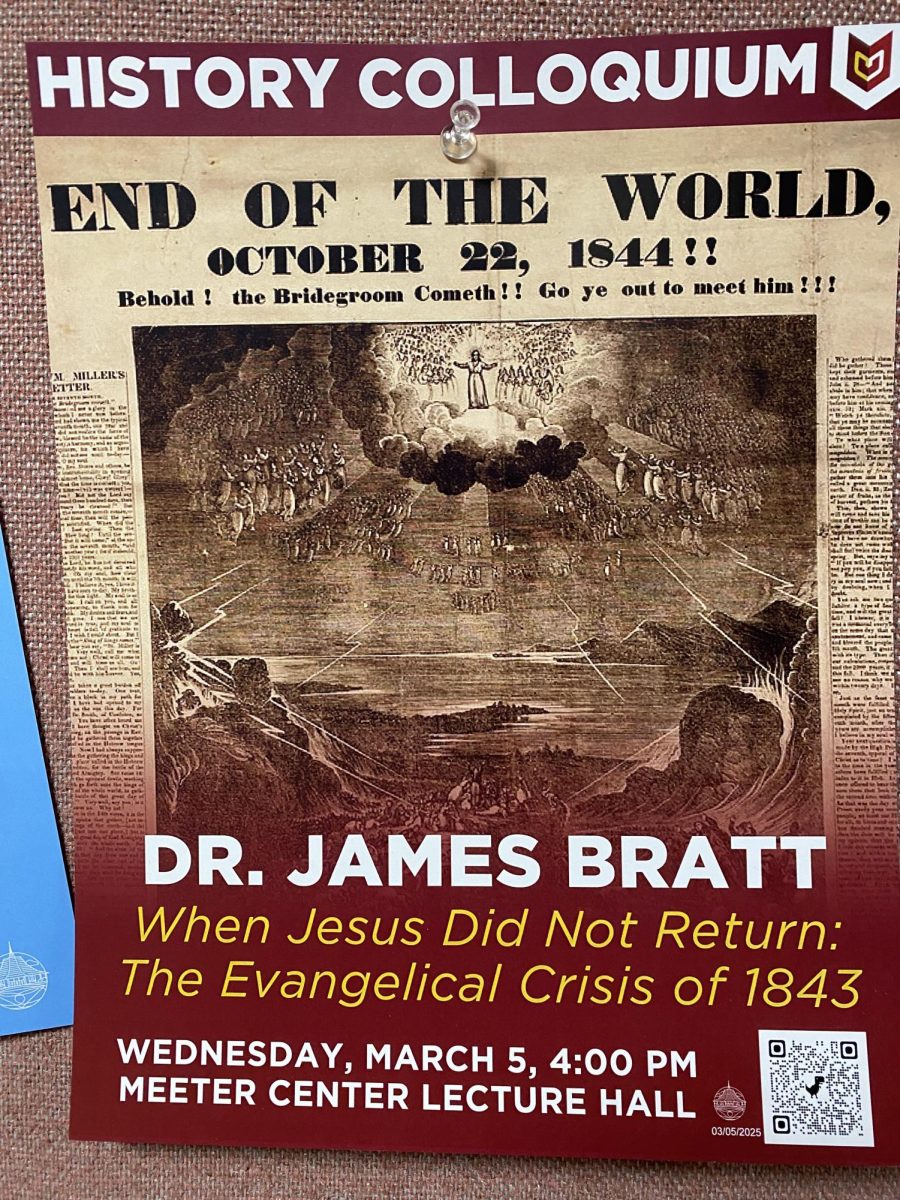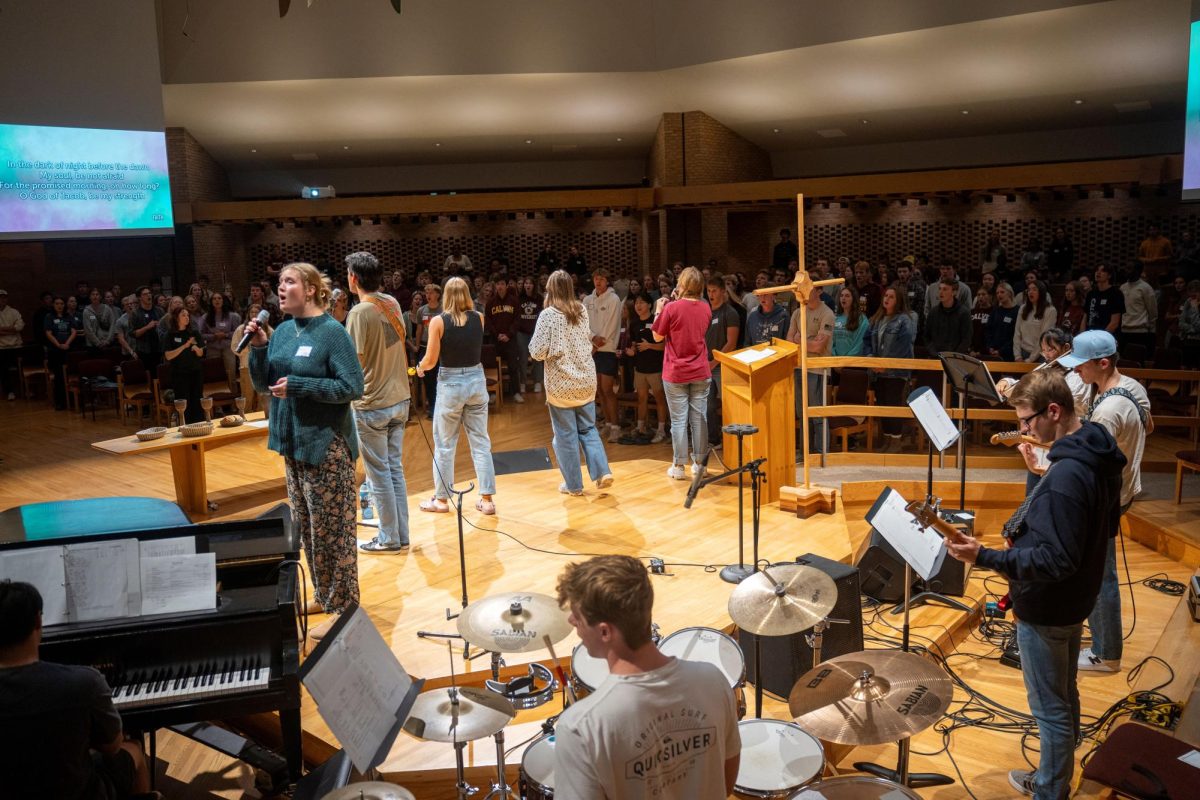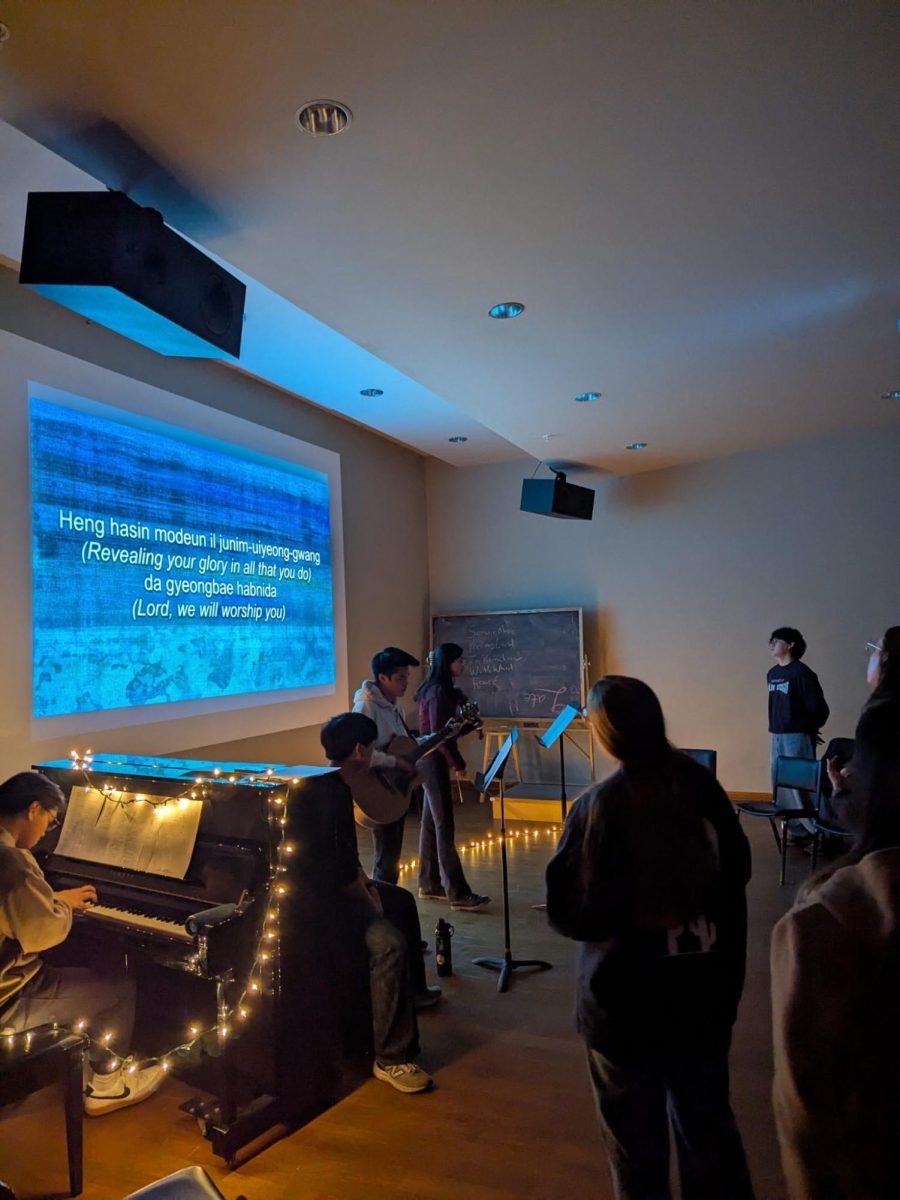The Day 10 report, which provides data on Calvin’s fall enrollment, revealed a shift in the denominational makeup of the school away from its Christian Reformed (CRC) roots.

According to this fall’s enrollment, around 43-percent of Calvin students have a Reformed background, 36-percent of those students being CRC. In 2004, just a decade ago, 50-percent of Calvin’s student body was made up of CRC students.
Instead, 41-percent of Calvin students now identify with what Calvin has labeled “other protestant traditions,” including Non-Denominational, Baptist and Methodist churches.
Interim associate chaplain for upperclass students, Matt Postma, noted that this change “is definitely something we are thinking about.”
“We are recognizing this demographic shift is happening,” he said.
Aminah Bradford, co-associate chaplain for residence life, feels this is an opportunity for the college to grow through discourse with other Christians “even while living out it’s Reformed identity.”
“Personally I like it because I think when different streams of Christianity interact we grow,” she said. “Each denomination has classic strengths and pitfalls.”
Russ Bloem, the vice president for enrollment management, believes one factor that leads to the reduced number of students affiliated with the CRC is “a function of decline of 18 year olds within the denomination and overall declining denominational loyalty in general.
The percentage of 18-year-olds from the CRC that come to Calvin has held steady over the years, according to Bloem, despite the decline in young people within the CRC overall.
Bloem said that more students seem to be showing “more openness to other schools,” meaning that they are less likely to choose schools based on their parents’ loyalties.
Tom van Eck, associate director of enrollment research, said that this year saw a reduced number of students from Christian high schools in general; in fact, there were a record number of students from public high schools.
While Bradford says that the change does reflect a shrinking CRC, she is hopeful about what it indicates about the global church.
“I hope it reflects that we are becoming a more hospitable place to the diversity in the global Church even while the college lives out of its core Reformed identity,” she said.
Calvin College’s website says “Calvin College is committed to diversifying its community by recruiting and retaining people from a variety of cultural, ethnic, ability, and socioeconomic backgrounds as administrators, faculty, staff, and students.”
As Calvin was founded by the CRC, it requires its staff members to be a current members of, or affiliated with a Christian Reformed Church or other Reformed church. This is meant to guard the college’s mission statement and preserve Calvin’s faith identity.
Some students believe that Calvin hindering itself by only employing professors from the Reformed traditions.
Junior Tiffany Miller believes “this is a disadvantage because Calvin isn’t as equipped to reach out to students who aren’t from the CRC background.”
However, Bradford believes this is a chance for Calvin to actively learn cross-cultural engagement and not only welcome students from other denominations, but learn from them.
“It’s one thing to welcome difference,” she said, “another to create real space for it.”






